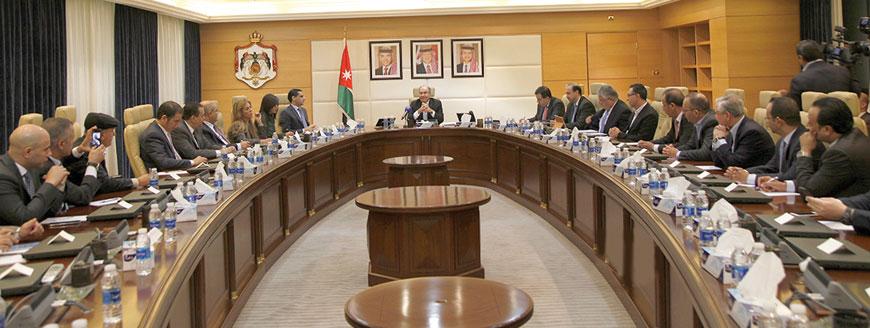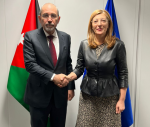You are here
Comprehensive reform programme on track — PM
By JT - Nov 08,2017 - Last updated at Nov 08,2017
AMMAN — Prime Minister Hani Mulki on Tuesday said that the government has been working on a comprehensive reform programme that encompassed economic, financial and administrative fields.
The premier said the government embarked on this programme since its formation in June 2016 with the aim of improving services offered to citizens, with a focus on health and education.
During a meeting with the Lower House’s Democratic bloc, that concluded several such meetings the premier has held with parliamentary blocs over the past few weeks, Mulki dwelt on the issue of subsidies and means to tackle the budget deficit.
He said it was paramount at the present to tackle the problem of the waste of subsidies, particularly of flour, noting that a good percentage of this subsidy goes to non-Jordanians living in the Kingdom, “which constitutes a waste of hard currencies”.
The government, Mulki affirmed, will not take any decision on lifting the subsidies without finding a fair formula to compensate the low- and medium-income segments of citizens.
“If the government does not arrive at such a mechanism to give support to those who deserve it, it will not take the decision to lift the subsidies”.
The premier said that the value of subsidies in 2017’s general budget reached JD800million to JD850 million.
As for the tax evasion, the prime minister noted that the tax law will be amended to include a minimum limit of taxes, establishing a unit for financial auditing and increasing penalties against tax evaders.
He said that the independent public institutions do not cost the treasury any fund except for water and electricity, noting that the Independent Institutions Law will be modified.
The premier stressed that the government has activated partnership with the private sector in implementing development and service projects by leasing to reduce public spending.
For his part, Labour Minister Ali Ghezawi outlined the government’s policy to switch from employing citizens to helping them establish their own income-generating enterprises through empowering them by vocational and technical training.
He noted several measures that were implemented by the ministry to organise the labour market.
Minister of Industry, Trade and Supply Yarub Qudah said that only three types of bread are currently supported and the government is scheduled to set a ceiling for prices of all types of bread.
Regarding the business environment, the minister noted that Jordan has moved forward by 17 points in the Doing Business Report during the past 11 months.
Related Articles
AMMAN — The government will go ahead with reforming the sales tax and cash support will be given to citizens entitled to receiving the subsi
AMMAN — The Cabinet on Tuesday sent to Parliament an IMF-backed draft tax bill, a main plank of austerity measures to ease rising public deb
The government will not raise the prices of bread, Government Spokesperson Mohammad Momani said Sunday, noting that Prime Minister Abdullah Ensour was clear in his remarks in this regard.
















